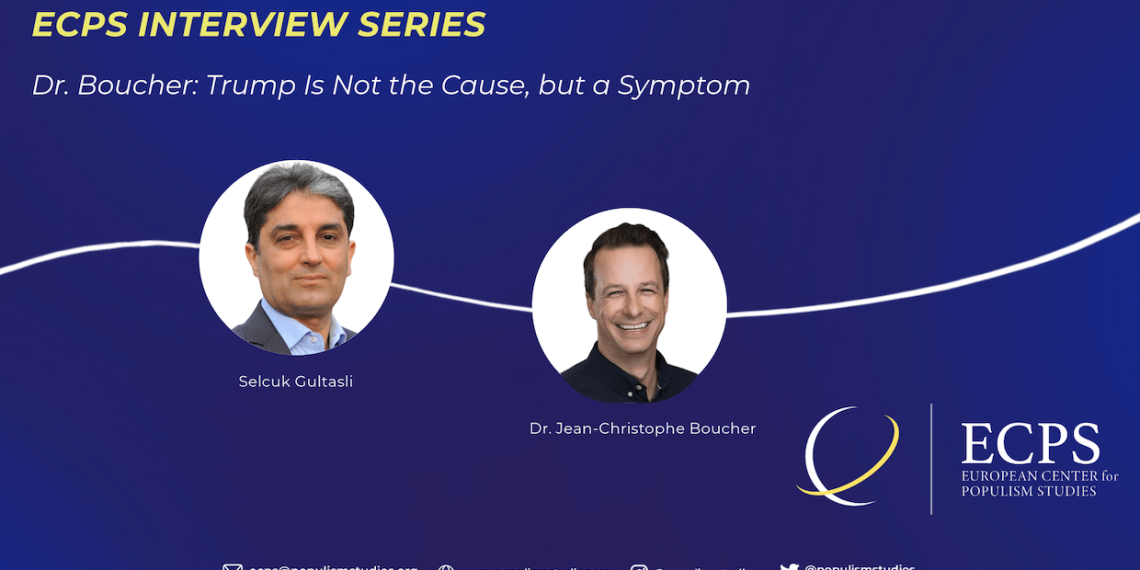In this incisive ECPS interview, Dr. Jean-Christophe Boucher, Associate Professor at the University of Calgary, explores how populism is reshaping US foreign policy—from tariffs as symbolic resistance to institutional erosion under Trump 2.0. Arguing that “Trump is not the cause but a symptom,” Dr. Boucher warns that even without Trump, populist forces will endure, backed by media ecosystems, think tanks, and loyalist networks. He emphasizes that “this is not really an economic argument. It’s a political and populist argument,” driving a shift from multilateralism to nationalist retrenchment. A must-read for anyone interested in the ideological drivers behind today’s turbulent geopolitics.
Interview by Selcuk Gultasli
In this timely and penetrating interview with the European Center for Populism Studies (ECPS), Dr. Jean-Christophe Boucher—Associate Professor at the University of Calgary’s School of Public Policy and Department of Political Science—offers a comprehensive assessment of how populist ideology is transforming American foreign policy, institutional norms, and multilateral engagement. Central to Dr. Boucher’s argument is a provocative but sobering claim: “Trump is not the cause but a symptom.” Even if Donald Trump were no longer on the political stage, Dr. Boucher insists, “this movement would remain part of the political conversation,” underscoring the durability and depth of populist forces within American society and institutions.
Dr. Boucher advances the ideational approach to populism, which links belief systems to behavioral patterns. Rather than viewing populist discourse as purely performative or strategic, he argues that “these people really believe in these values and these hierarchies of beliefs, and they’ll start to act upon it.” This perspective, he contends, helps explain the internal coherence of Trump’s policies across domains, including trade, immigration, and foreign relations.
One of the interview’s central themes is the symbolic repurposing of trade tools like tariffs. For Trump and his supporters, tariffs are no longer just economic instruments; they are reimagined as expressions of national sovereignty and resistance against a “globalist elite.” As Dr. Boucher puts it, “this is not really an economic argument. It’s a political and populist argument.” This reframing speaks to broader populist tendencies that elevate identity, emotion, and anti-elite resentment over technocratic expertise and institutional procedure.
Throughout the conversation, Dr. Boucher traces how institutional degradation—accelerated under what he calls “Trump 2.0”—is being enabled by a growing ecosystem of populist actors, from think tanks like those behind Project 2025 to social media influencers and tech elites. He warns that foreign policy institutions like the State Department and Department of Defense are being hollowed out, potentially making way for a more centralized, nativist, and unilateralist foreign policy doctrine.
Ultimately, Dr. Boucher’s analysis is a call to recognize the structural, not merely electoral, nature of the populist threat. “There’s significant support for it,” he reminds us. Understanding this dynamic is essential for those hoping to defend democratic institutions and multilateralism in an era of resurgent populism.


